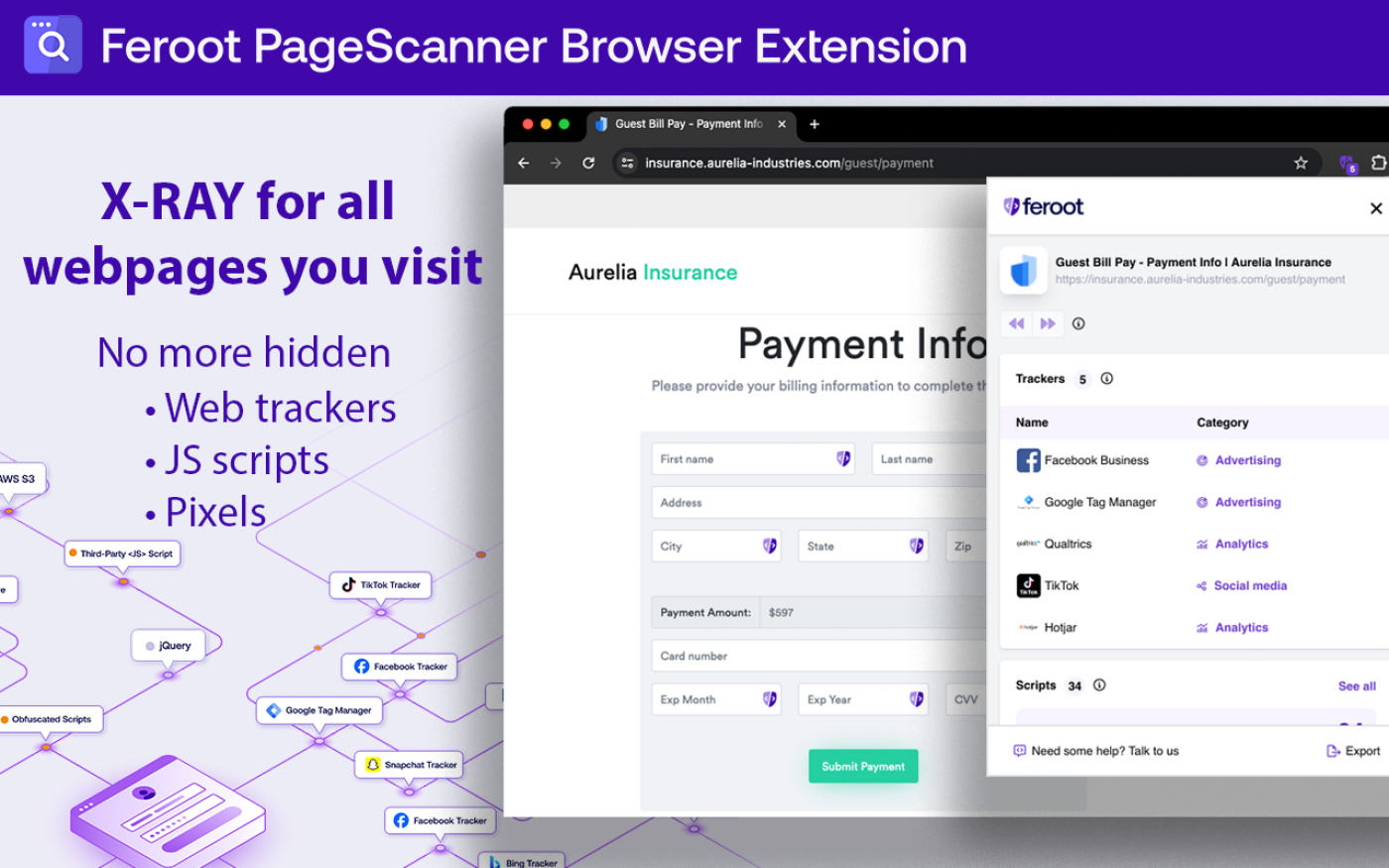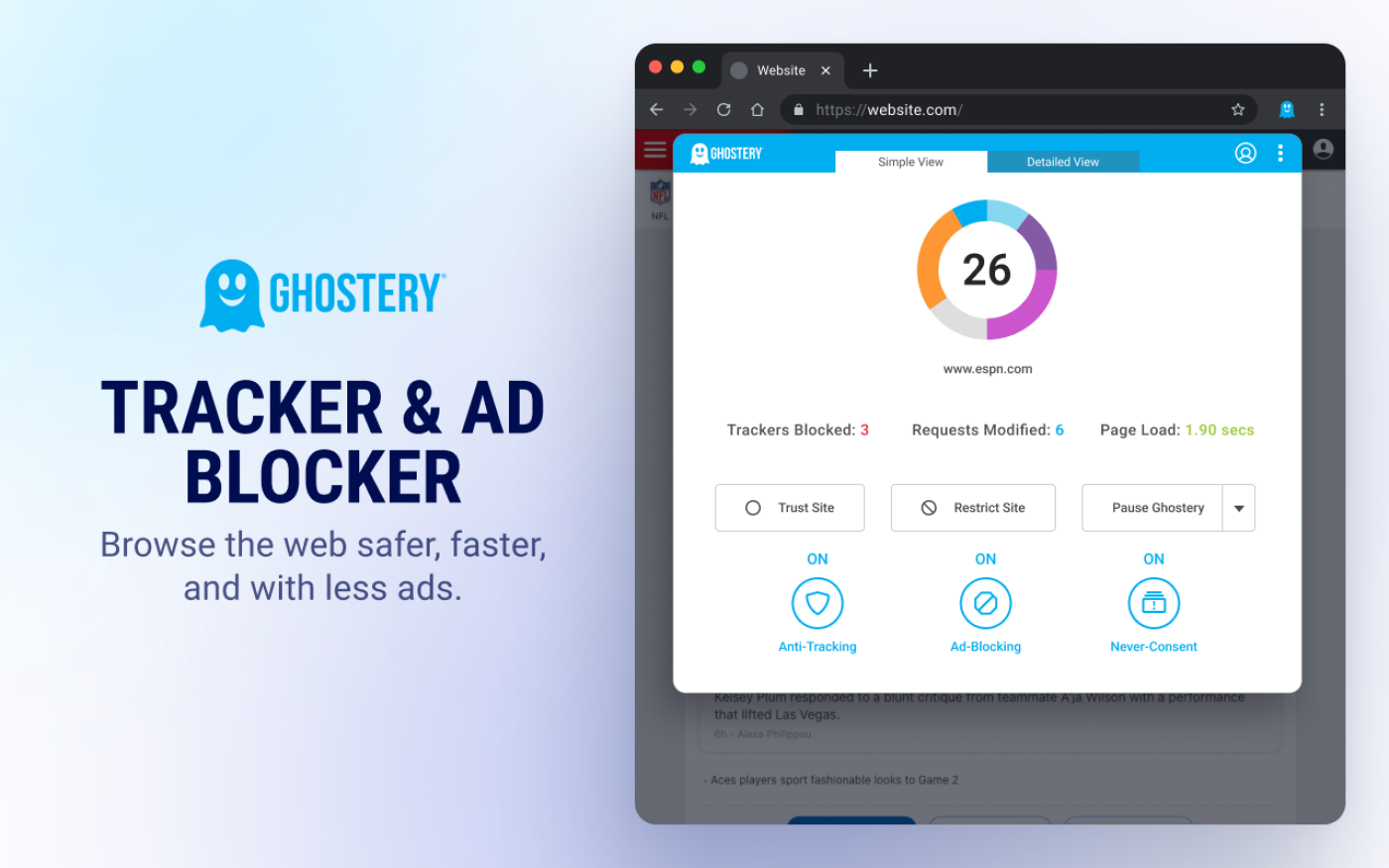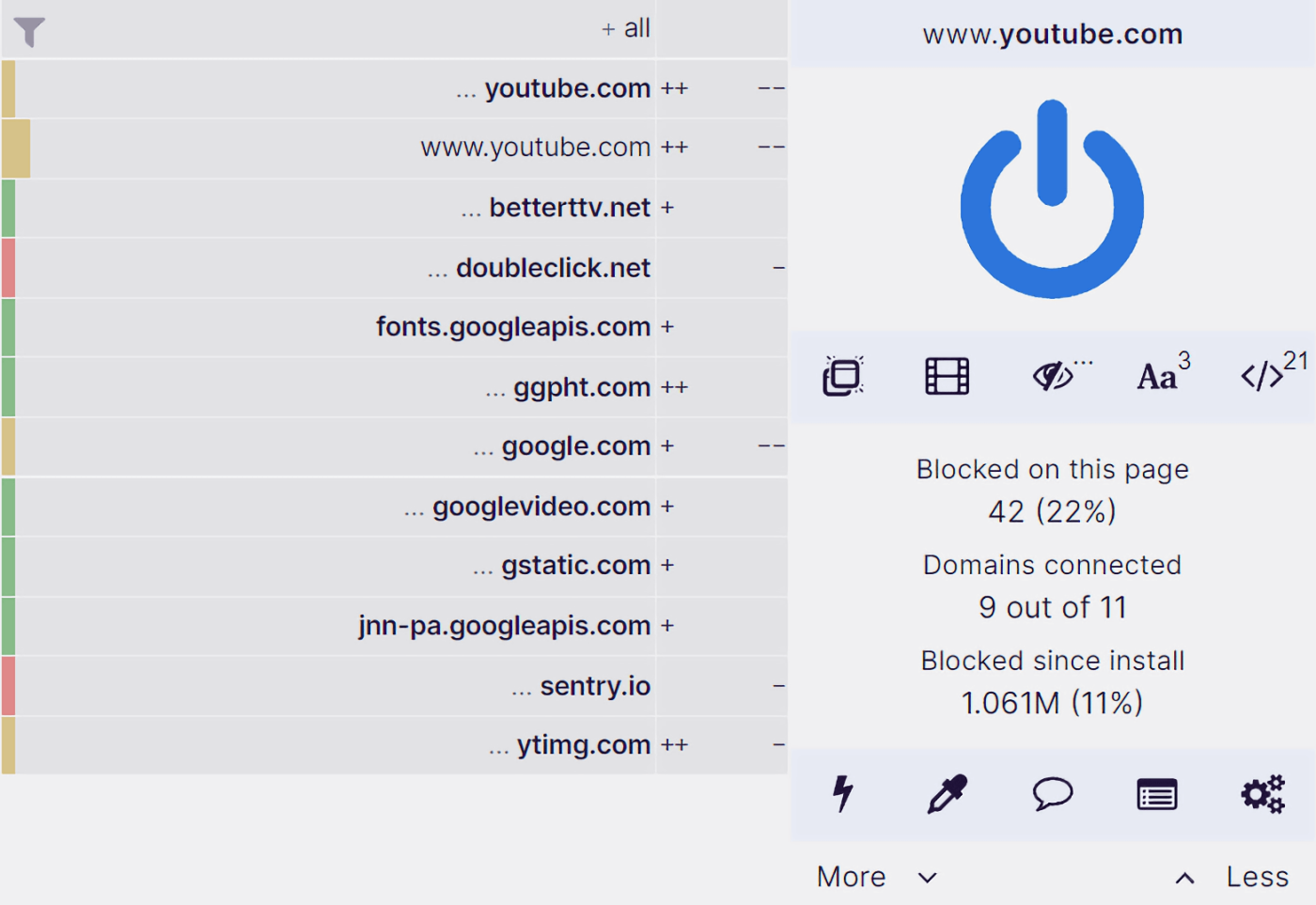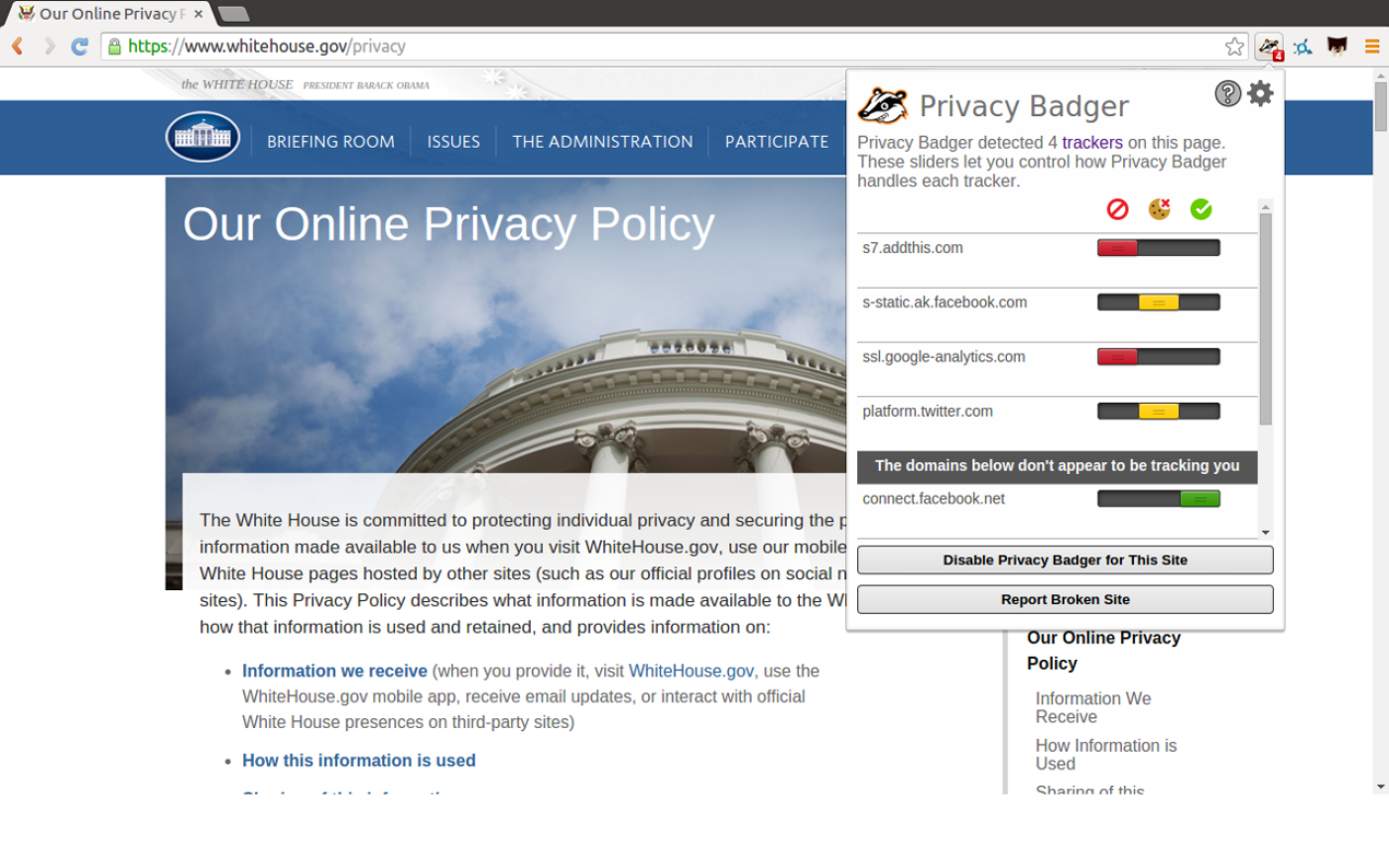How to protect yourself from online tracking: Useful tips
 Tips to help stop companies from tracking you online (photo: Pexels)
Tips to help stop companies from tracking you online (photo: Pexels)
Online tracking has become an everyday reality that threatens our online privacy. Protecting your personal data is more important than ever, and knowing effective ways to protect yourself will help you maintain your privacy, according to Lifehacker.
How companies can track you
Currently, there are two main methods of online data tracking: the first cookie, which is gradually disappearing, and pixel trackers, which are a bit more complicated.
You've probably heard the term “cookie” before. They are small packets of information that allow websites to store data such as your password so that you don't have to log in every time you access a website.
But in addition to these “necessary” files, there are third-party cookies that can track your browsing session, information that can later be sold to data firms.
While the principle remains the same, legislation on tracking pixels is sparse, meaning that users who are used to cookie restrictions now have to go back to square one when it comes to data vigilance.
Some site elements now even come complete with scripts that can go further than cookies ever did.
This is probably the most obvious way you can be tracked online. If you've visited any foreign website recently, you've probably noticed a form asking you to consent to cookies.
While it may be a short-term annoyance to go through them, they have gone a long way toward making cookies less stealthy and much easier to block.
Add to that Google's often-delayed but still-planned attempt to kill cookies entirely. Because of this, data brokers have had to become more inventive.
Tracking pixels work similarly to cookies, but use images instead of text. Essentially, companies can hide transparent or otherwise invisible pixels on your screen and receive a notification when your browser loads them, allowing them to track which parts of a website you visit and when.
How to know if you are being tracked
There's an advantage to the way tracking pixels and scripts integrate directly with website code: with enough effort, you can find out when you're being watched.
When tracking pixels are uploaded to a site, you can see their tags in the code of that site.
If you know what to look for, simply right-click and select “Check” from the drop-down menu to start your research. This will work in Chrome, Firefox, and Microsoft Edge, although Safari will require a bit of fiddling.
However, if you don't want to do it manually, some tools automate the process for you and also give you context for what you see.
The latest and most reliable is Feroot PageScanner, a free Chrome extension.
Feroot PageScanner probably has the fastest interface for informing you when your data is being tracked. While it does nothing to block trackers, it does display notifications on your screen in real-time, letting you know when your data is being tracked and by whom.
Its menu also provides a detailed list of active trackers, who is running them, and what purpose they serve. In addition, you will be able to view any scripts running on the web page you are visiting without having to enter the “Check” menu.
It's designed for enterprise customers who perform security analysis on their sites, especially those seeking PCI compliance. But it's also a great place for anyone to start, as it gives an in-depth, if slightly frightening, look at the scope of the problem.
 Feroot PageScanner (photo: Lifechaker)
Feroot PageScanner (photo: Lifechaker)
How to block online trackers
Now that you understand the scope of the problem, there are many tools available to help you take control of your online privacy. The least intrusive of these is a browser extension.
Ghostery
Ghostery works similarly to PageScanner, except that it can go further and limit trackers. However, its information is not as detailed as PageScanner's.
That is, it will tell you where the trackers come from and what purpose they pursue, but you will not receive pop-up notifications and will not be able to sort scripts.
According to experts, Ghostery also conflicts with PageScanner, so it is better to use it to neutralize threats that you have already identified.
Ghostery is available as an extension for most browsers and as a standalone browser with built-in features. It also offers a privacy-focused search engine that is available both as a browser extension and on its site.
If you prefer not to install anything, you can see which trackers are active on the site by going to Ghostery's website, whotracks.me.
However, despite being an open-source project, Ghostery has been criticized in the past for selling data and replacing blocked ads with its own.
Since its acquisition in 2017, Ghostery has been working to restore its reputation.
 Ghostery (photo: Lifechaker)
Ghostery (photo: Lifechaker)
uBlock Origin
uBlock Origin is another open-source ad blocker, and while it may be a bit more difficult to understand and use than Ghostery, there's no doubt that it's the most powerful of all the options.
It can block almost any element on any site with accuracy, and while it comes with built-in block lists, you can also create and import your own.
The downside is that it gives you less information about how and when you are being tracked compared to PageScanner or Ghostery because it just displays the blocked tags and ads and expects you to be able to parse them. It is available as an extension for Chromium and Firefox browsers.
 uBlock Origin (photo: Lifechaker)
uBlock Origin (photo: Lifechaker)
DuckDuckGo
DuckDuckGo is a popular privacy-focused company that is better known for its search engine. It also has a browser extension and the browser itself that blocks trackers.
The company's tracker blocking code is open source, so it can be openly tested, but there is one caveat: there is no ad blocking if the ad does not contain a tracker.
.png) Screenshot
Screenshot
Privacy Badger
Privacy Badger has a similar function and interface to uBlock Origin, but it is more focused on trackers than ads. Also open source, its interface does not provide many details about how you are being tracked, and there is no ad blocking if the ads themselves do not track you.
Privacy Badger developers constantly test tags and scripts for invasive methods and regularly update the extension with new trackers to block.
Local learning allows Privacy Badger to learn from your browsing habits, while this may make you more recognizable to trackers, it can be useful if you regularly visit unpopular websites.
Privacy Badger is available for Chromium and Firefox browsers. Local learning can be turned on and off in the Options page.
 Privacy Badger (photo: Lifechaker)
Privacy Badger (photo: Lifechaker)
VPN
Finally, outside of the realm of extensions and websites that block tracking, there are VPNs. A VPN essentially hides your browsing data by filtering it through other sources and hiding your IP address.
The best VPNs are paid services, but some encrypt your data for free. Don't trust every free VPN, although names like Proton Pass and Tunnelbear are as respectable as the big players but less reliable.


